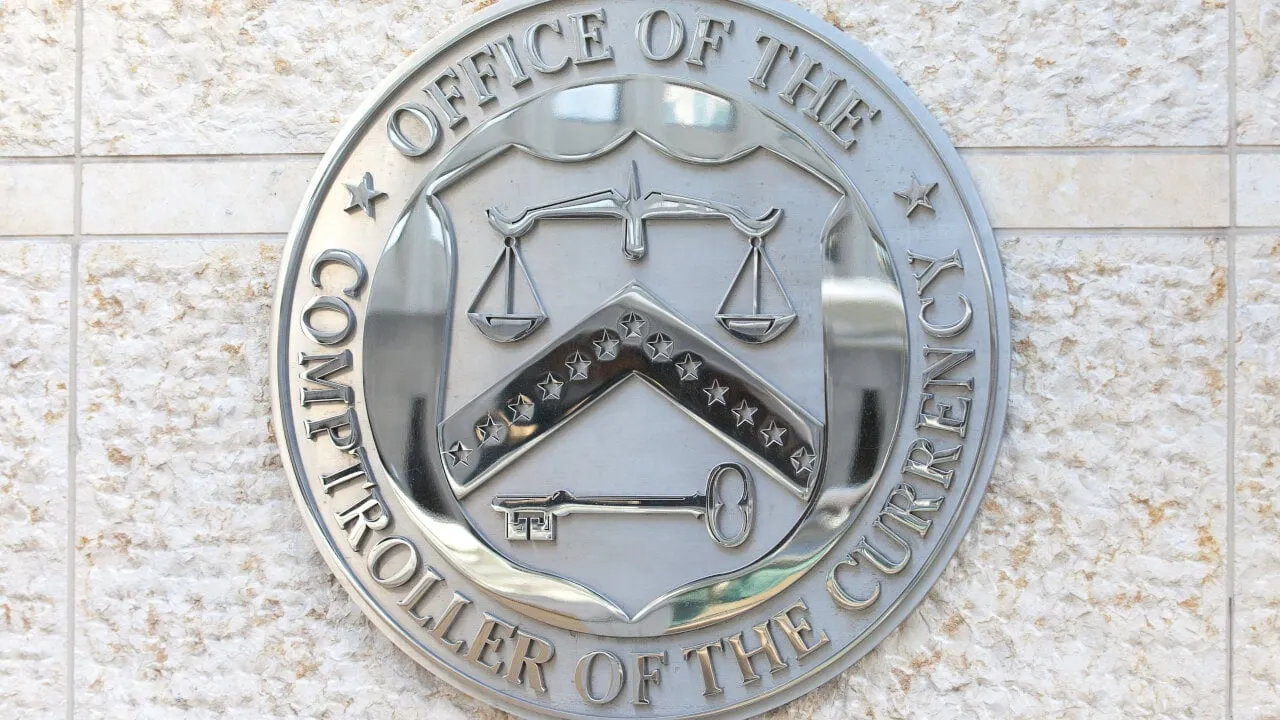In brief
- U.S. national banks can now buy, sell, and manage crypto assets under custody following new OCC guidance.
- The OCC also permits banks to outsource crypto custody and execution services to third parties.
- The decision marks a rollback of prior restrictions and a coordinated policy shift across U.S. financial regulators.
The Office of the Comptroller of the Currency has given a nod to national U.S. banks it oversees, allowing them to buy, sell, and manage crypto assets under their custody.
National banks may do so at their customers’ direction and are permitted to outsource crypto custody and execution services, an interpretive letter, issued Wednesday by Acting Comptroller of the Currency Rodney E. Hood, reads.
The OCC's affirmation follows coordinated action across regulatory agencies, signaling a broader recalibration of the Trump administration's approach to digital assets.
New directions
Two weeks ago, the Federal Reserve, along with the Federal Deposit Insurance Corporation (FDIC), withdrew supervisory letters that had required banks to obtain prior consent before engaging with crypto, effectively ending "Choke Point" practices that have hindered and marred the crypto industry's reputation.
With its new directive, the OCC builds on Interpretive Letter 1170, which in July 2020 initially established banks' authority to provide crypto custody.
Banks could offer and provide "cryptocurrency custody services, including holding the unique cryptographic keys associated with cryptocurrency," the OCC wrote at the time, characterizing such activities as "a modern form" of traditional banking.
But that early openness was later tempered in 2021 and 2022, under a new administration, the OCC—alongside the Federal Reserve and FDIC—issued guidance requiring banks to obtain written supervisory non-objection before engaging in crypto-related activities, effectively stalling institutional adoption. That policy has now been reversed with the OCC’s latest guidance.
It comes as some traditional banks seek crypto market entry without building infrastructure from scratch, even as critics, like President Donald Trump’s son Eric, see some anti-crypto banks as "broken, slow, and expensive."
The OCC's latest affirmation, meanwhile, follows Interpretive Letter 1183 from earlier in March, in which the office reaffirmed crypto-asset custody, distributed ledger, and stablecoin activities as "permissible."
At the time, the OCC tagged those three sections as "crypto-asset activities" and noted that banks could develop and engage with them, as long as they are "consistent with sound risk management practices."
Later that month, FDIC followed suit, with Acting Chairman Travis Hill stating the move shows it is "turning the page on the flawed approach of the past three years."
Edited by Sebastian Sinclair

